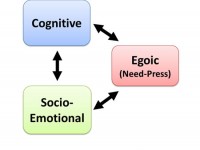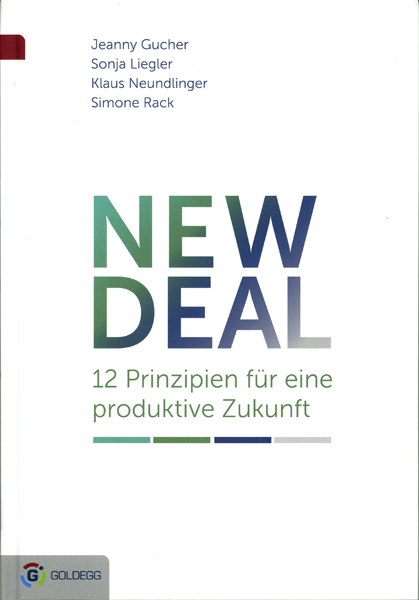The papers collected in this blog center around the topic of complex thinking as a hallmark of individual freedom, organizational effectiveness, and societal well-being. They all focus on Lebensbefreiung, the unburdening from needless linear clutter in the mind and the obfuscation of communication. The articles point to, and explicate, a tradition of deep thinking that in the Western tradition began with Plato and survived to the time of Hegel and Heidegger, but through the onslaught of social media and simplistic 'agile' tool kits is presently at risk of being disavowed and forgotten, not only in education, but in training and management. The research reported in these papers is based on DTF, the Dialectical Thought Form Framework (Laske 1999, 2008, 2015, see publications at https://interdevelopmentals.org/publications/). DTF is a synthesis and refinement of work done by Basseches (1984), Bhaskar (1993), and Jaques (1994). It was born of the need to gain a comprehensive concept of adult development that has gone missing in the work of Loevinger, Kegan, and other 'developmental' researchers and their followers (like Wilber) by one-sidedly focusing on social-emotional, not also cognitive, development. By contrast, DTF transcends meaning-making toward sense-making both of which are needed to understand adult development in... Read More...
Category: Consulting to Executives
Zur Durchdringung organisatorischer Beratung mit Einsichten aus CDF
In diesem Artikel fuehre ich im Einzelnen die Geschichte und die Eigenart des Constructive Developmental Framework (CDF) aus. Ich moechte zeigen wie insbesondere ein soziologischer Beratungsansatz wie New Deal (Gucher 2015), aber auch aehnliche Beratungsvorgehen, durch Einsicht in die lebenslange Entwicklung von Menschen vertieft und im Dialog mit Kunden flexibel werden koennen. Der Nachdruck im Text liegt darauf, dass alle Dimensionen von Sozialkapital -- persoenliche Beziehungen, Emotionen, Aufmerksamkeit und Wissen -- in ihrer Bestehensweise und Verwendung entschieden von dem Reifegrad von Individuen und Teams abhaengen. Dies legt nahe, die auf New Deal beruhenden Interventionen durch sozial-emotionale und kognitive Werkzeuge aus CDF zu bereichern und dadurch zu staerken. Insbesondere erhoeht man durch CDF die Dialogfaehigkeit von Gruppen und Teams und staerkt das fuer eine kollaborative Arbeitsweise notwendige gegenseitige Vertrauen. Der Artikel behandelt sowohl wie man CDF durch Gruppenarbeit am Interdevelopmental Institute erlernt und wie man das erlangte Wissen in Kundenberatung und Coaching einfuehren kann. Anfragen ueber Lehrweise und Kosten der CDF Ausbildung zur dialogischen Beratung bitte an Otto Laske, otto@interdevelopmentals.org, richten. Durchdringung des New Deal mit CDF Feb. 2018 Read More...
Introduction to “Dynamic Collaboration: How to Strengthen Self-Organization and Collaborative Intelligence in Teams” (Jan De Visch & Otto Laske 2018)
This blog gives readers access to the Introduction to Jan DeVisch's and my book entitled Dynamic Collaboration: How to strengthen self organization and collaborative intelligence in teams, to be launched in May 2018 at the University of Antwerp, Belgium. In this book of five chapters, we deviate from the extant team literature by adopting an adult-developmental perspective and instead of "skills", "competences", and "agile" mantras and tool kits focus on the structure and quality of team dialog as the source of self-organization both in individuals and teams. We equate self-organization with being mature enough to be aware of the structure of one's emotions and thoughts as an expression of the level of one's adult development. To provide senior managers with new ways of thinking about teams and new kinds of interventions derived therefrom, we show that teams are always developmentally mixed -- composed of different developmental levels -- and dependent upon how team majority relates to team minority, are prone to being either up- or downwardly divided, rather than unified. We put at the disposition of senior managers a large set of tools unknown to them that derive from adult-developmental research at Harvard's Kohlberg School since 1975, showing them how... Read More...
NEW DEAL: A sociological consulting approach to humanistic management and deliberately developmental organization
This blog introduces a sociological approach to consulting to organizations, with a focus on social capital (Sozialkapital) as the indispensable foundation of value creation and social productivity. The approach, called New Deal, formulated in German (Gucher et al, 2015), is the fruit of new social science research, and is sponsored by Four Dimensions GmbH active in Vienna and Salzburg, Austria. New Deal represents a sociological approach in the sense that it sees work and value creation as a process by which social capital is constantly created as well as potentially destroyed in human interactions. To substantiate this insight New Deal introduces four "new economies" (not found in classical economy): of personal relationships, emotions, attention, and knowledge, respectively. According to this approach, managing the creation of social capital amounts to managing the four economies at all levels of an organization, whether it is hierarchical or not. The blog highlights what is fresh about New Deal in light of North American preferences for focusing on "getting the job done", or remaining in what CDF calls the "Task House". Reflecting on the New Deal approach from an adult-developmental perspective, the blog elucidates why "moving out of the Task House" is a requirement especially... Read More...
Thought Form Constellations as Measures of Team Connectivity
In this article, the author proposes structural, rather than behavioral or emotional, measures of team connectivity and introduces the notion of "cognitive" or "structural" systems constellations. These measures are derived from DTF, his Dialectical Thought Framework, a methodology rooted in cognitive developmental research since 1975. In contrast to the contemporary team literature, and in a follow up of an article co-authored with Graham Boyd on Distributed Leadership found in a book forthcoming at Palmgrave Publishers, UK, (#aboutBook), the author focuses on measuring team connectivity based on a team's cognitive behavior graph in real time. The author teaches DTF to both individuals, especially as coaches, and teams, in hands-on workshops in English and German, and with the help of a translator also in Spanish and Italian. TF Constellations 2 Read More...
Improving Management by Design: Novel Tools for Expanding and Deepening the Business Model Design Space
I propose to strengthen the cognitive processes involved in design thinking, especially for cross-functional teams, both through artificial intelligence techniques and focused cognitive coaching. I take as an example of design thinking the canvas metaphor used by Osterwalder and Pigneur (2014, 2010), selecting its CS (customer segment) component for further scrutiny. Specifically, I introduce an amplified form of design thinking called "transformational" thinking that is grounded in research in adult cognitive development over the lifespan (Laske 2008 [2017b/c]). My approach is rooted in DTF, the Dialectical Thought Form Framework developed at the Interdevelopmental Institute (IDM) since the year 2000. In focus in the blog is the notion of “hidden dimensions” of the canvas that iterative cognitive sprints of a cross-functional team reveal. I see such sprints as based on a combination of “breadth-first” and “depth-first” search, where the former is focused on creating the biggest possible picture, while the second deepens and refines the picture in its details, both in terms of thinking and resulting outcome. I show that the two kinds of searches are mutually reinforcing and that purely logical thinking (and thus algorithmic thinking also) fail in depth-first search, At the end of the text, I demonstrate by... Read More...



